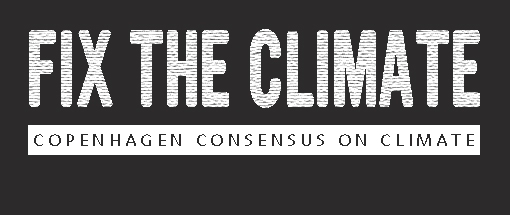Mulegata Tesfaye and Konget Mekonen, Ethiopia
Mulegata Tesfaye and Konget Mekonen laugh when they are asked what would improve their standard of living. "We need everything," Konget says. "Mainly, we need a hospital and more money. We also need food. We are aware that our children do not eat enough."
The couple lives in Akakey, an industrial area on the edge of Addis Ababa, Ethiopia, and have four children of their own. Two weeks before a Copenhagen Consensus Center researcher interviewed them in June, they took in their six-year-old orphaned nephew, Garsum. They found him lying on the dirt floor of his grandmother's house in a rural village. He was unable to stand.
"He was living like a dog," his uncle said.
The small boy does not speak. He coughs constantly and suffers from spells of vomiting and diarrhea. His adoptive parents took him to a basic health center because they could not afford a hospital. There they learned he is HIV positive and suffering from malnutrition. They can only afford a treatment for his cough.
"We do not have money, but we know he is very sick," Konget said.
Garsum is too ill to attend school. Konget and Mulegata earn around $70 a month working at a state-owned factory. Each day when they go to work and their own children leave for school, they lock their nephew into their tiny three-room house, alone, so that he won't wander into the streets.
Poor families in Ethiopia struggle to survive, and global warming will make it tougher for them. In some of the poorest areas on earth, global warming is expected to increase hunger in the future. Mulegata has heard talk of global warming but, he said, "it does not affect our lives."
What does affect his life is high food prices. His family can afford to eat meat just once a month. Global food aid is at a 20-year low. Prices soared in 2008, partly because rich countries' biofuel mandates—designed to fight global warming—have meant that land once used to grow crops to feed people is now being used to grow crops to feed cars.
Investing in malnutrition assistance helps countries like Ethiopia because it reduces the burden that malnourished people place on health systems. Spending money on HIV prevention and treatment is a highly effective use of aid money. In economic terms, these investments have benefits that far outstrip their costs.
Malnutrition should not be neglected as developed countries concentrate on global warming. Oxfam has warned that at least 4.5 million children could die and 8.6 million fewer people could have access to HIV/AIDS treatment if rich countries divert aid to help poor countries tackle climate change instead of malnutrition as part of an agreement to be negotiated in Copenhagen next month.
Oxfam argued that developed countries should both increase aid and spend more to pay off countries that will suffer the worst of global warming. But the harsh truth is that resources are limited. Money spent on global-warming policies is likely to reduce the funds available for food aid.
It is therefore immoral to focus resources on doing a small amount of good in the distant future. Six-year-old Garsum is lucky to have been rescued by his uncle and aunt. As his uncle told the Consensus researcher, "In the villages, there is nothing. He is 10 times better here." But Garsum is still facing a tough life. Only an immediate focus on malnutrition interventions and HIV treatment will provide him with a chance at a better life.
Researcher: Joana Socies

